Brian St. Pierre is the director of nutrition at Precision Nutrition, the coauthor of Precision Nutrition’s Level 1 Certification textbook, The Essentials of Nutrition and Coaching, and the mastermind behind the Precision Nutrition Calculator. He holds a master’s degree in Food Science and Human Nutrition from the University of Maine.
St. Pierre is a Registered Dietitian (RD), Certified Strength and Conditioning Specialist (CSCS) through the National Strength & Conditioning Association (NSCA), and a Certified Sports Nutritionist (CISSN). He also serves on the Men's Health Network (MHN) Board of Advisors.
During his time at Precision Nutrition, St. Pierre has provided nutrition coaching and performance meal planning to US Open champion Sloane Stephens and a host of other professional and Olympic athletes. He’s also served as a nutrition consultant for the NBA’s San Antonio Spurs and Brooklyn Nets and the NFL’s Cleveland Browns.
Prior to joining Precision Nutrition in 2012, St. Pierre was the head sports nutritionist and a strength and conditioning coach for Cressey Sports Performance, a high-performance facility in Hudson, Massachusetts and Jupiter, Florida.
A leading expert in teaching nutrition coaching skills to fitness professionals, St. Pierre has presented hundreds of workshops and trainings in five countries and 17 U.S. states. He’s been featured in US News & World Report, Men’s Health, Men’s Fitness, ESPN the Magazine, Shape, Q Magazine, STACK, and Testosterone Magazine and his insights have been included in stories on ESPN.com, About.com, BuzzFeed, and more.
Twitter: @bspnutrition
LinkedIn: brian-st-pierre-ms-rd-cscs-b2a19519b
Website: http://brianstpierretraining.com/
Articles by Brian St. Pierre, MS, RD
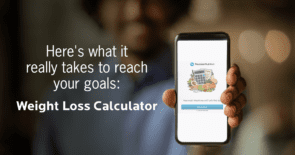
Precision Nutrition’sWeight Loss Calculator
This weight loss calculator (based on the NIH Body Weight Planner and adapted from research collected at the National Institute of Diabetes and Digestive and Kidney Diseases), factors in how your metabolism really works to predict how long it’ll take to reach a particular weight loss goal.
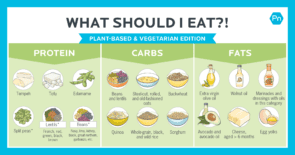
‘What should I eat?!’ How to choose the best vegetarian and plant-based foods for your body. [Infographic]
Start making better choices, whether you’re browsing the grocery store aisles, cooking a homemade meal, or ordering from a menu.
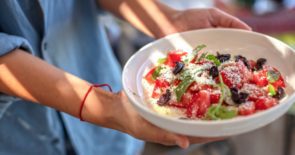
Best diet quiz: How’s that diet REALLY working for you?
This 16-question quiz helps you figure out whether a dietary approach is a good fit—allowing you to feel good, perform in the gym, eat out, and remain connected to friends and family.

Carb cycling: Is this advanced fat loss strategy right for YOU?
(Take the quiz.)
Here’s everything you need to know about this popular nutrition strategy.
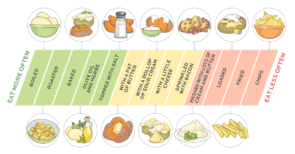
Sweet potatoes vs. potatoes: Which are really healthier? [Infographic]
Sweet potatoes vs. potatoes: A nutritional debate fueled by misinformation, baseless ‘superfood’ obsessions, and carbohydrate phobias. Here’s how these tubers compare — and why both deserve a place in your diet.
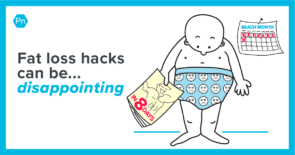
Fat loss hacks!?!? 10 charts show why you don’t need them.
Most “diet hacks,” “fast fixes,” and “easy solutions” make fat loss even harder than it needs to be. Here’s what you can do instead.
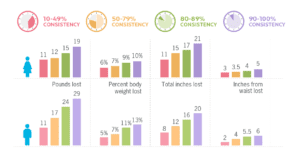
Nearly 1 million data points show what it REALLY takes to lose fat, get healthy, and change your body.
We analyzed a year’s worth of data from 1,000 nutrition coaching clients to find out how much effort it really takes to make meaningful change—to your body, your health, and even how you feel about yourself. This body transformation research might shift your thinking about weight loss and health improvement forever.

Meal plans usually suck.
Lots of people looking to improve their eating think meal plans are the answer. The only problem? Meal plans usually suck... and they rarely last. So, instead of prescribing yet another doomed eating regimen, check out these 6 ways to transform any diet in a sustainable way.
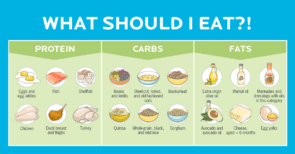
‘What should I eat?!’ Our 3-step guide for choosing the best foods for your body. [Infographic]
This easy-to-use visual guide shows you how to make healthier nutrition choices, and determine the best foods for your body, goals, and taste buds. In fact, our simple three-step process helps you create a customized healthy-eating menu in just a matter of minutes. And the best part: Nothing’s off limits.
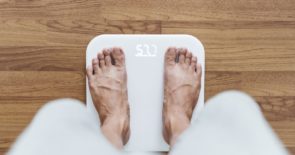
Can eating too little actually damage your metabolism?
There’s a lot of discussion in the fitness industry about whether crash dieting can cause metabolic damage. In this article, we’ll take on this interesting topic and separate fact from fiction. We’ll also teach you exactly why crash diets might be linked to struggling to maintain your weight in the future.
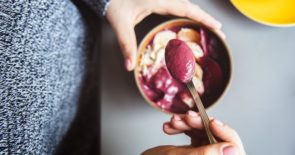
‘Superfoods’ vs ‘regular’ foods: Why nutrition facts don’t tell the whole story. [Infographic]
Plenty of people hate kale. It doesn’t matter that it’s a so-called “superfood.” (And yes, it is pretty super.) After all, you can’t help what you like… or don’t like. But should you (or your clients) force down a “superfood” even if you detest it? Not necessarily. While it’s popular to put some foods on […]

We’ve told 100,000 clients, “There are no bad foods.” And we’re not about to stop. Here’s why.
Our stance tends to spark lots and lots of questions, which is why this article takes a deep dive into the whole “good foods vs. bad foods” debate.
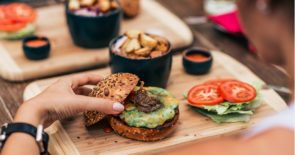
The modern diet dilemma: Is it better to… eat meat? Go vegan? Something in between? The truth about what’s right for you.
The vegan vs. meat-eater debate is complex. Consider these pros and cons when deciding whether to go vegetarian, whole-food plant-based, or vegan.
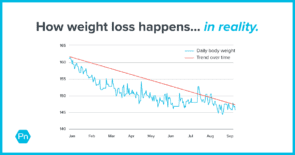
Fat loss and muscle gain: What does realistic progress look like?
How fast can a client lose fat? What's the upper limit for muscle gain? We have the numbers—and your coaching game plan.

Macros vs. calories vs. portions vs. intuitive eating: What’s the best way to ‘watch what you eat?’
Should you count calories and macros? Estimate your portions? Try intuitive eating? Use this guide to get the results you want, gain a better relationship with food, and make healthy eating seem effortless.
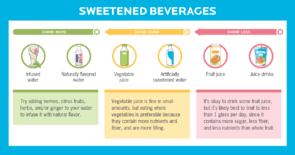
‘What should I drink?!’ Your complete guide to liquid nutrition. [Infographic]
Consider this graphic the uncomplicated answer to every question you’ve ever had about what to drink (including how much, when, and why). And here’s a surprise: You don’t have to swear off the drinks you love in the name of better health and nutrition. Instead, use this guide to make beverage choices that are just a little bit better, one step at a time.
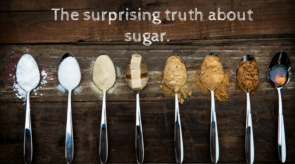
The surprising truth about sugar.
Worried you’re eating too much sugar? Wondering how much is safe to eat? Or whether it's bad for you... no matter what? It’s time we took a clear-headed look at this controversial topic. It’s time you heard the truth about sugar.
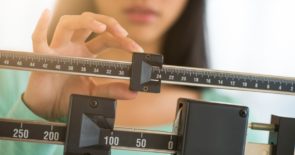
Can you gain weight from eating too little? No, but here’s why it’s so easy to think you can.
You’re tracking your eating and exercise meticulously but not seeing results. Has your metabolism slowed to a crawl? Are your hormones off? Is it really possible to GAIN weight from eating too LITTLE? Here’s what’s really going on — and how to solve it.
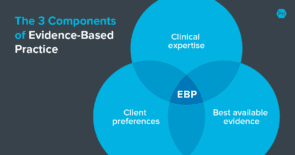
Evidence-based coaching:
Are health and fitness
pros doing it wrong?
Evidence-based practice is all the rage in certain health and fitness circles. And for good reason: It’s a powerful tool for helping you provide the most-well informed and effective advice to your clients. But if you think it’s only about what “research says”, you’re doing it wrong. Here’s the three-part formula that’ll ensure you’re using evidence to get the best results for the people who come to you for help.
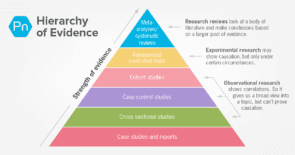
What’s that study REALLY say? How to decode research, according to science nerds.
Academic studies aren’t going to top any “best summer reads” lists: They can be complicated, confusing, and well, pretty boring. But learning to read scientific research can help you answer important client questions and concerns... and provide the best evidence-based advice. In this article, we’ll help you understand every part of a study, and give you a practical, step-by-step system to evaluate its quality, interpret the findings, and figure out what it really means to you and your clients.
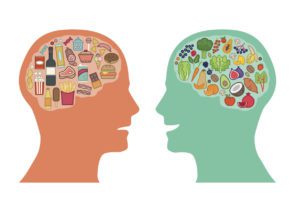
Eating too much? You can blame your brain.
Forget willpower: Brain signals drive what, how, and when we eat. If you’re eating too much, here’s how to take back control.
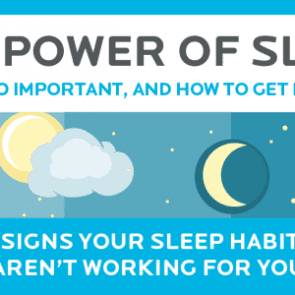
The power of sleep. [Infographic]
If your eating and exercise are on point, but you still don’t feel or look the way you want, poor sleep may be to blame. Here’s how to tap into the power of sleep and make rest a daily priority.
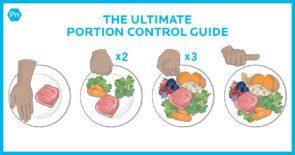
The best calorie control guide. [Infographic]
There’s a simpler way to gauge your portions.



Share